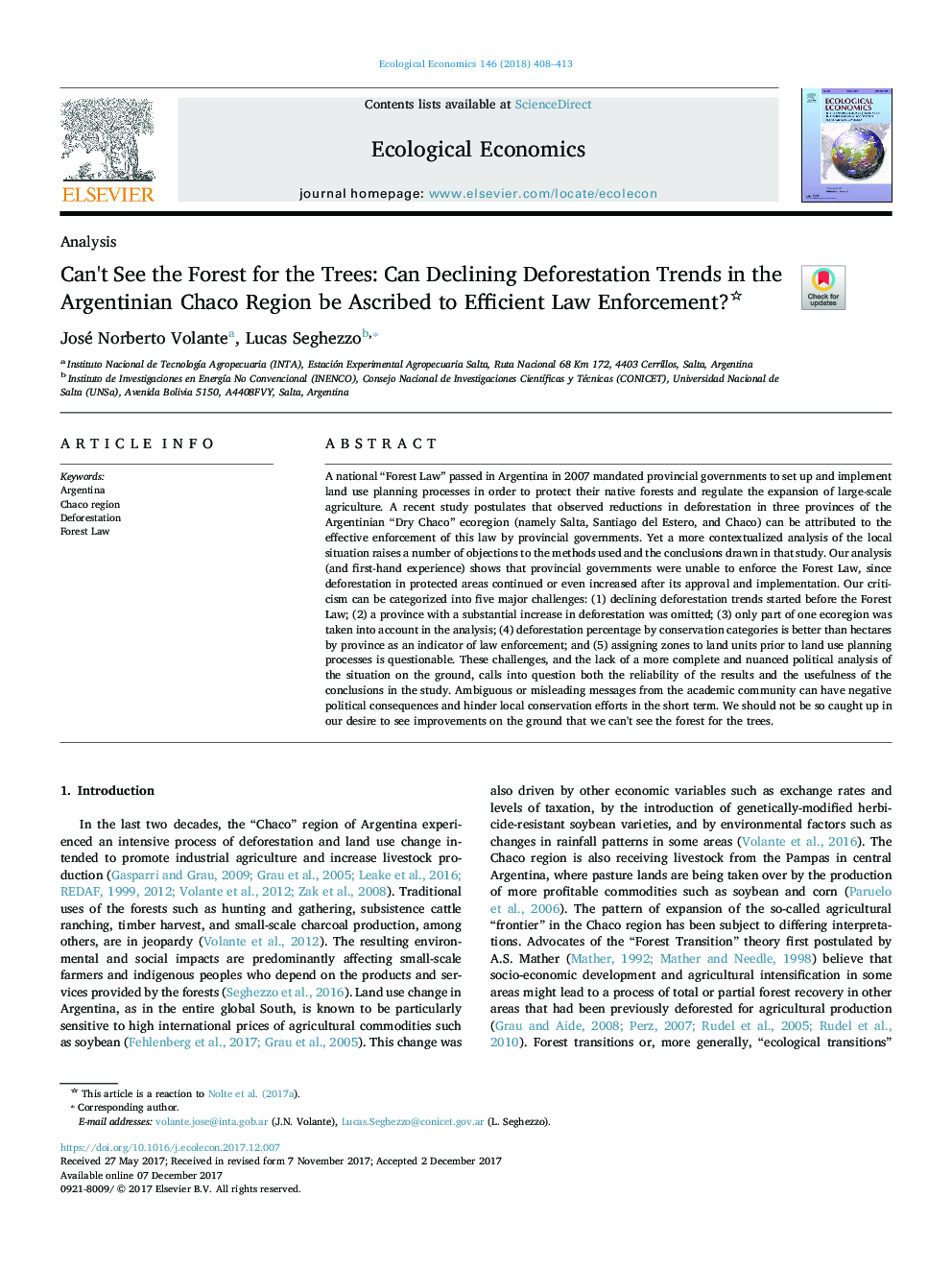| کد مقاله | کد نشریه | سال انتشار | مقاله انگلیسی | نسخه تمام متن |
|---|---|---|---|---|
| 7344603 | 1476333 | 2018 | 6 صفحه PDF | دانلود رایگان |
عنوان انگلیسی مقاله ISI
Can't See the Forest for the Trees: Can Declining Deforestation Trends in the Argentinian Chaco Region be Ascribed to Efficient Law Enforcement?
ترجمه فارسی عنوان
آیا می توان جنگل های درختان را مشاهده کرد: می تواند روند نابودی جنگل ها در منطقۀ چاکو آرژانتینی را کاهش دهد تا به اجرای قانون کارآمدی پایبند باشد؟
دانلود مقاله + سفارش ترجمه
دانلود مقاله ISI انگلیسی
رایگان برای ایرانیان
کلمات کلیدی
آرژانتین، منطقه چاکو، جنگل زدایی، قانون جنگل،
موضوعات مرتبط
علوم زیستی و بیوفناوری
علوم کشاورزی و بیولوژیک
بوم شناسی، تکامل، رفتار و سامانه شناسی
چکیده انگلیسی
A national “Forest Law” passed in Argentina in 2007 mandated provincial governments to set up and implement land use planning processes in order to protect their native forests and regulate the expansion of large-scale agriculture. A recent study postulates that observed reductions in deforestation in three provinces of the Argentinian “Dry Chaco” ecoregion (namely Salta, Santiago del Estero, and Chaco) can be attributed to the effective enforcement of this law by provincial governments. Yet a more contextualized analysis of the local situation raises a number of objections to the methods used and the conclusions drawn in that study. Our analysis (and first-hand experience) shows that provincial governments were unable to enforce the Forest Law, since deforestation in protected areas continued or even increased after its approval and implementation. Our criticism can be categorized into five major challenges: (1) declining deforestation trends started before the Forest Law; (2) a province with a substantial increase in deforestation was omitted; (3) only part of one ecoregion was taken into account in the analysis; (4) deforestation percentage by conservation categories is better than hectares by province as an indicator of law enforcement; and (5) assigning zones to land units prior to land use planning processes is questionable. These challenges, and the lack of a more complete and nuanced political analysis of the situation on the ground, calls into question both the reliability of the results and the usefulness of the conclusions in the study. Ambiguous or misleading messages from the academic community can have negative political consequences and hinder local conservation efforts in the short term. We should not be so caught up in our desire to see improvements on the ground that we can't see the forest for the trees.
ناشر
Database: Elsevier - ScienceDirect (ساینس دایرکت)
Journal: Ecological Economics - Volume 146, April 2018, Pages 408-413
Journal: Ecological Economics - Volume 146, April 2018, Pages 408-413
نویسندگان
José Norberto Volante, Lucas Seghezzo,
